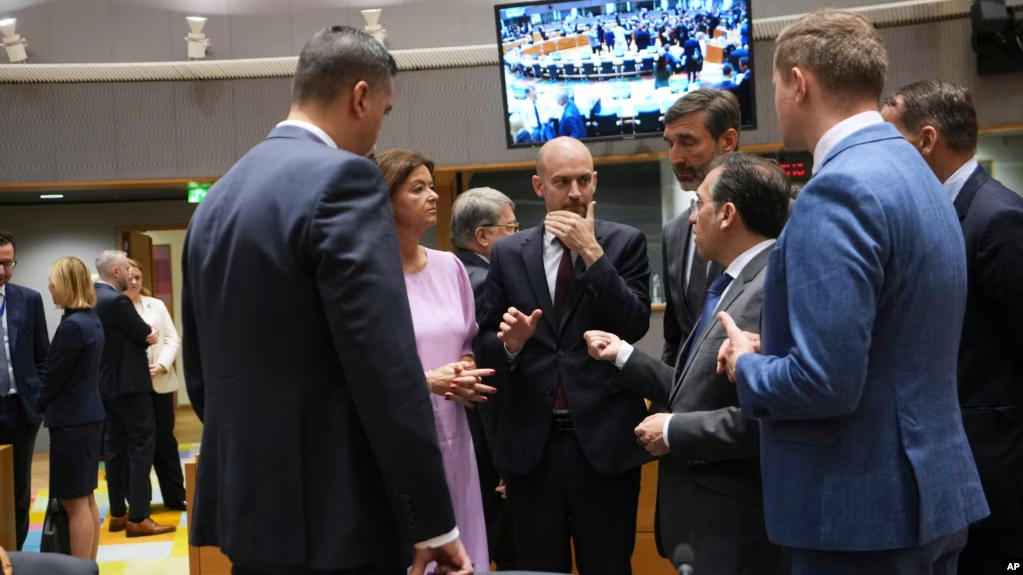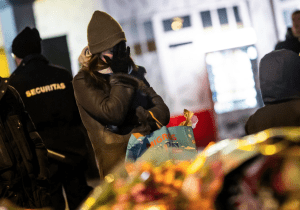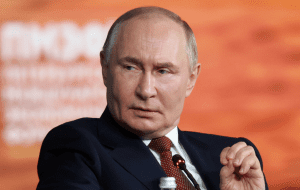Hungary’s continued veto over Ukraine’s EU accession talks casts a shadow over the June 26 European Council summit in Brussels, risking the credibility of the EU enlargement process as Moldova seeks to avoid being held hostage by internal EU politics.

Hungarian Veto Paralyzes Ukraine’s EU Path, While Moldova Hopes for Escape Route
As EU leaders convene in Brussels on June 26 for their crucial summer European Council summit, the mood is tense. While Ukraine and Moldova were once held up as symbols of the EU’s commitment to supporting Eastern European democracies, that narrative is now cracking under the weight of Hungary’s veto power—and the political maneuvering of Prime Minister Viktor Orbán.
The summit, which follows directly after the NATO talks in The Hague, was supposed to showcase unity and progress. Instead, it has turned into what one diplomat called a “last chance saloon” for unlocking formal EU accession negotiations with Kyiv and Chisinau during Poland’s EU Council presidency, which ends in just days.
Orbán’s Blockade: A Domestic Game with Geopolitical Stakes
Hungary’s refusal to allow the opening of accession clusters for Ukraine, citing internal political reasons and a disputed referendum on EU expansion, has all but stalled the momentum that Brussels once trumpeted. And with Hungary’s parliamentary elections looming in April 2026, few expect Orbán to budge anytime soon.
“EU enlargement has become a hostage of domestic populism,” said one senior diplomat, expressing frustration over what many see as Hungary’s blackmail tactics within the Union.
To Split or Not to Split? Moldova Caught in the Crossfire
With Ukraine blocked, there’s growing pressure to decouple Moldova from the joint accession track. Chisinau’s European aspirations remain strong, especially with an EU-Moldova summit planned for early July and tight parliamentary elections on the horizon.
Yet several EU member states fear that green-lighting Moldova while stalling Ukraine would signal weakness—and worse, submission to Hungary’s obstruction.
The draft summit declaration, seen by RFE/RL, carefully walks the line: “The European Council looks forward to the next steps in the accession process in line with the merit-based approach, with clusters being opened when the conditions are met.”
Translation: no progress for anyone unless everyone agrees—and Hungary clearly doesn’t.
Montenegro May Advance as Enlargement Momentum Fades
Ironically, the only tangible movement in this so-called “enlargement summit” may come from Montenegro, which is expected to close a cluster of negotiation chapters on June 27. It’s hardly the breakthrough eurocrats had hoped for, but at least it keeps the process alive.
Sanctions vs. Enlargement: A Quiet Quid Pro Quo?
While EU enlargement talks remain frozen, diplomats say there’s one area where Hungary may soften its stance: sanctions on Russia.
Two major decisions are on the table:
- The 18th round of sanctions
- A six-month extension of all existing sanctions, including over €200 billion in frozen Russian assets
In what some see as a potential quid pro quo, Brussels may push through the sanctions agenda with quiet acknowledgment that Ukraine’s EU path will remain on ice, for now.
With Russia ramping up attacks on Ukrainian civilian targets, resistance to sanctions is politically untenable—even for Orbán. In January, Hungary briefly threatened to block renewal, but few expect that drama to repeat this week.
EU Credibility at Stake
Whether it’s enlargement or sanctions, the stakes are high. The EU must balance strategic unity with internal democratic dysfunction, all while Russia continues to exploit every crack.
For Ukraine and Moldova, the wait continues. For Brussels, the credibility of the entire enlargement process hangs in the balance.













Comments are closed.